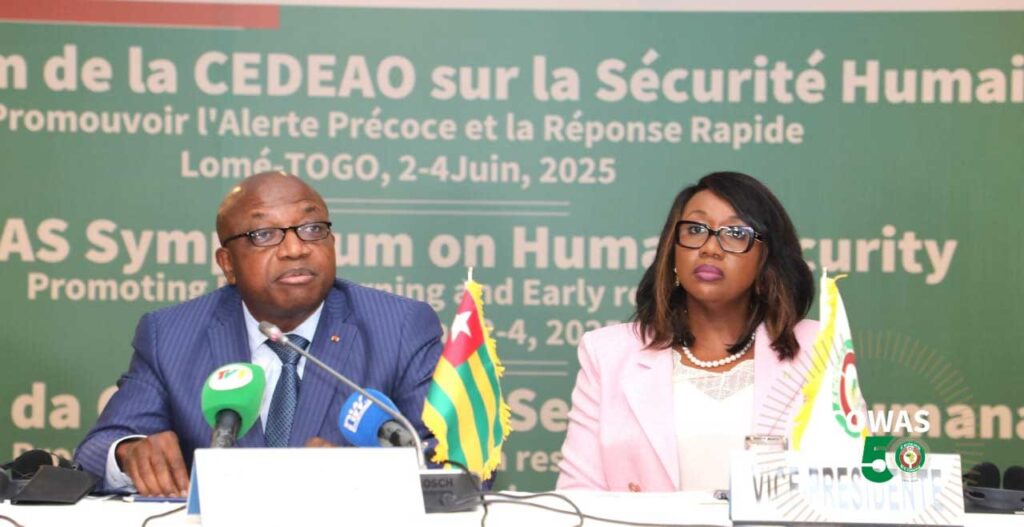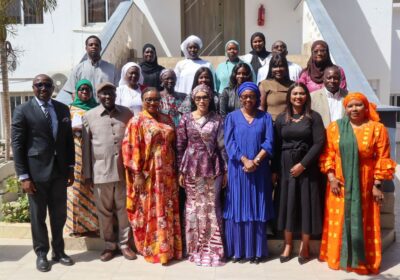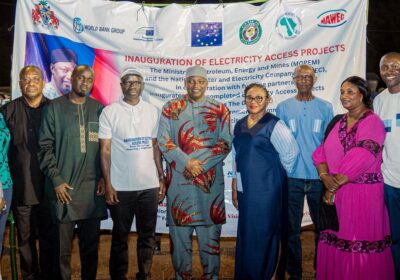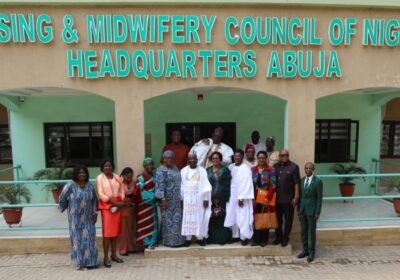National Early Warning System in W/Africa Gets Boost as Experts Review Mechanism For improvement.
By Raymond Enoch
In a pivotal moment for West Africa’s security future, human security experts from across ECOWAS Member States have converged in Lomé to review and reposition the region’s early warning and response strategy.
The three-day ECOWAS Symposium on Human Security and National Early Warning and Response Mechanisms kicked off on Monday, marking a decade of implementation and forming part of the 50th anniversary celebrations of the regional bloc.
Held from June 2 to 4 in the Togolese capital, the symposium aims to extract key lessons from ten years of the National Early Warning and Response Mechanism, while setting bold new priorities for the next decade.
The experts meeting was officially launched by H.E. Ambassador Calixte Batossie Madjoulba, Togo’s Minister of Security and Civil Protection, and H.E. Mrs. Damtien Tchintchibidja, Vice-President of the ECOWAS Commission, who underscored the urgent need for adaptive and collaborative regional strategies in the face of evolving threats.
“This is not just a review; it’s a reset for the future,” stated Mrs. Tchintchibidja. “We must align our mechanisms with the changing security landscape to protect lives, rights, and stability across West Africa.”

Over the course of the symposium, experts will examine the successes and shortcomings of the past decade, review relevant legal frameworks, and recommend key reforms. A central focus is the redefinition of thresholds and objectives to reflect current realities—ranging from terrorism and coups to climate-driven displacement.
This high-level meeting symbolizes a strong political and technical commitment by ECOWAS to elevate human security and peace infrastructure, setting the tone for the next phase of regional cooperation.
As ECOWAS turns 50, the message from Lomé is clear: West Africa is looking forward—determined, united, and ready to respond.to climate change and environmental issues in West Africa.










